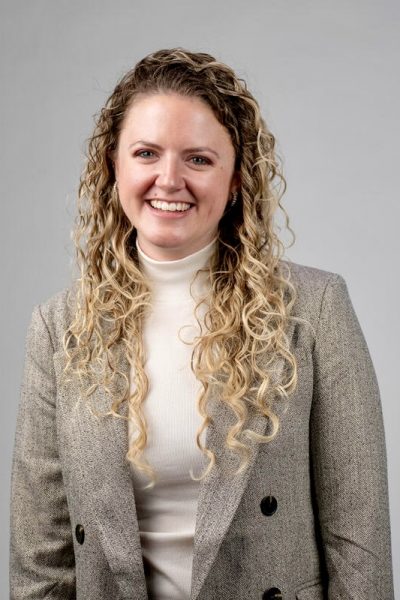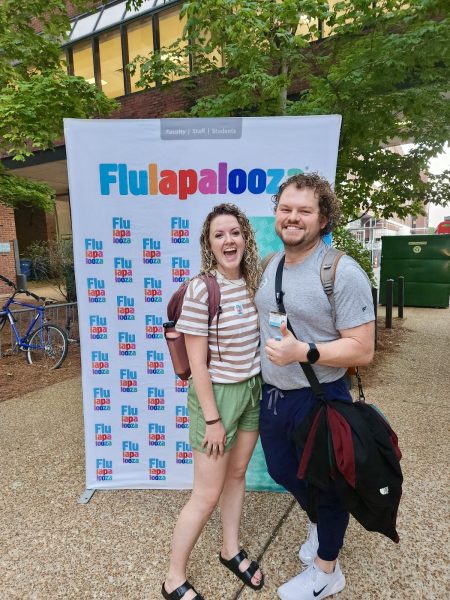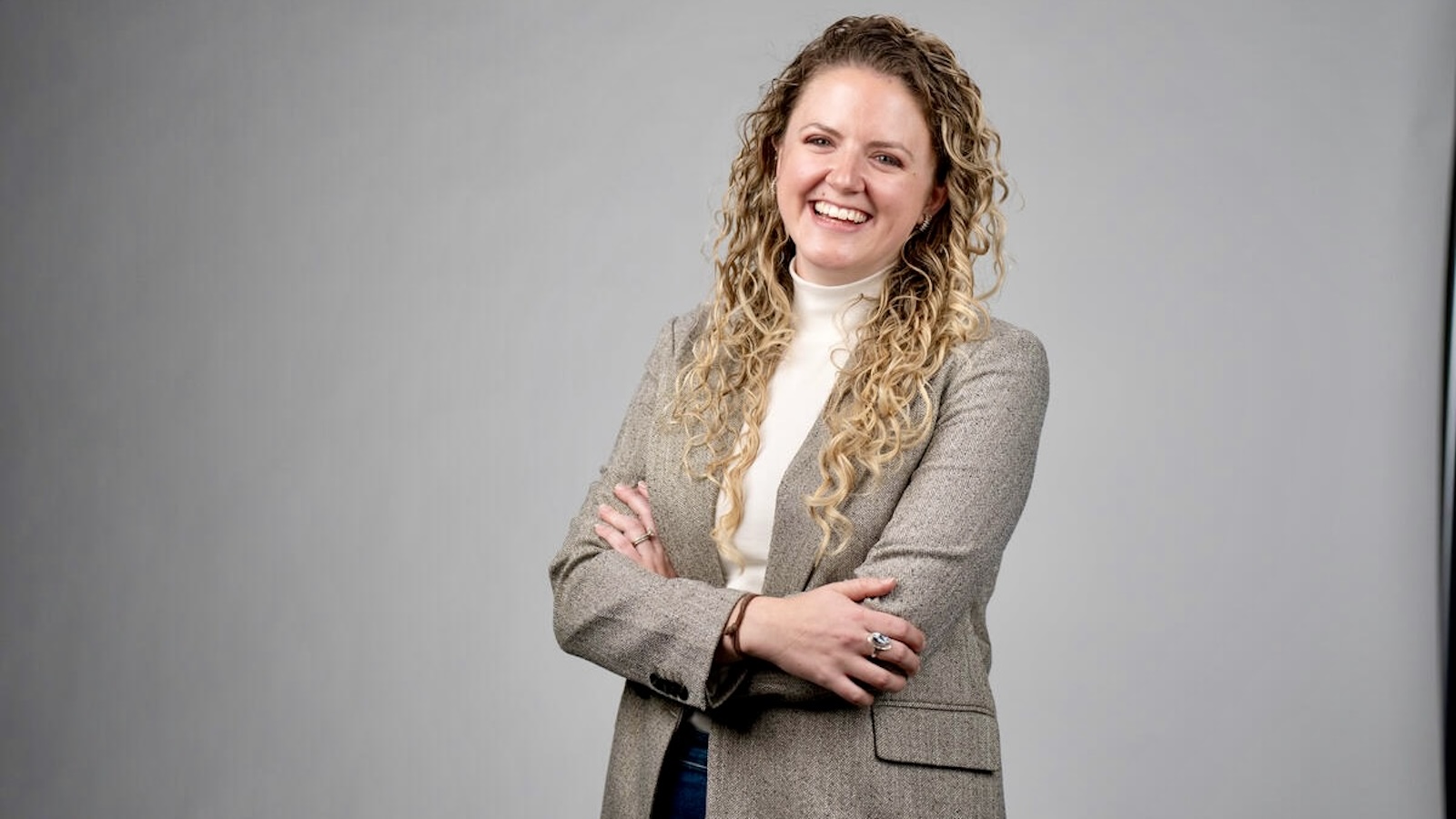The concept that “science is not finished until it is communicated" is a mantra Kaitlyn Browning is making the foundation of the next chapter of her life. It’s a philosophy that will have the Ph.D. candidate in biochemistry from the School of Medicine Basic Sciences working in the lab and in front of lawmakers and other political influencers.

“A lot of misunderstanding and misinformation is because scientists don't always effectively communicate their discoveries. I would love to be at that interface between the scientists innovating and discovering, and then the government officials deciding on our priorities,” said the Hillsborough, North Carolina, native.
Browning combined her work in Vanderbilt labs with a Howard Garrison Advocacy Fellowship through the Federation of American Societies for Experimental Biology. It provides instruction and experience in advocacy, science policy, science communications, leadership development and career exploration.
“I believe that it is our responsibility, especially as stewards of so much public resources and funding, to conduct science and help it be communicated so it can be made into practical solutions,” she said.
Her work on how bacteria mutate, as well as living through the rampant miscommunication of the COVID-19 pandemic, inspired her passion for bridging the scientific-political divide.

Those issues were especially close to home, since her husband is a registered nurse who worked in the COVID wards.
“Of course, the COVID-19 pandemic put a spotlight on this age of miscommunication. We witnessed so much contention simply because researchers don’t always explain scientific concepts in a way that the public understands. Their findings could’ve saved lives and improved quality of life. As a scientist, I want to do better,” she said.
FIGHTING ANTIBIOTIC RESISTANCE
Browning said her Ph.D. research tied to the evolution of bacteria, which she conducted in the lab of Houra Merrikh, professor of biochemistry, is a perfect example of the need for expanded science-policy partnerships.
“My current work is understanding the ways that bacteria evolve and mutate to build a resistance to antibiotics. But instead of just creating new antibiotics, I want to help address the bigger issue of antibiotic resistance,” she said.
That’s where science policy, advocacy and communication come in.
“Policymakers are deciding what our priorities are, they’re deciding how we spend our money. And so, advocating for science in that is critically important,” she said.
CHILDHOOD DREAM
Browning grew up the child of a scientist, and she has vivid memories of her and her brother tagging along and watching their dad work in his lab.
“I’ve always wanted to be a scientist. I was always interested in figuring out what makes you sick and what you can do about it,” she said.
“My family growing up—and my husband now—have always made me feel that I could accomplish anything I set my mind to. I think their support really solidified my belief that I could pursue any career,” she said.
Browning says that after more than two decades of schooling, she’s eager to take her education and experience and make a difference in the world.
“After defending my Ph.D. I truly understood what it meant for my dad to say, ‘I'm proud of you,’ or my husband to say, ‘I'm proud of you.’ And I guess it’s because I'm proud of me too.”
THREE QUESTIONS
WHAT DOES DARE TO GROW MEAN TO YOU?
When I think of Dare to Grow, I think it's a challenge, right? It's not like a motto, like commitment to excellence. No, it's daring the students to grow. It's daring the students to do something.
You know, you play that game, truth or dare? The word dare is an action. And I love that. That sort of is the challenge that is presented to every single student at Vanderbilt. We dare you to grow. We dare you to meet your potential, to do great things because we know that you can. That's sort of the culture of Vanderbilt.
WHERE HAVE YOU FOUND COLLABORATION?
Collaboration is huge. It's huge in science, of course, and it's been a huge part of my success. My name is on the paper, but there are so many people who helped me achieve what I achieved.
My Ph.D. research had multiple parts. First I had to develop a method, and then I had to use the method. Then I also had to analyze the data that I collected from using the method. And at every point there was help along the way. I could not have done this alone, and I am so grateful to all the people who worked with me along the way.
VANDERBILT IS…
To me, Vanderbilt is a place to be empowered to effect change in the world around you.
Something significant that I learned at Vanderbilt is that I didn't have to fit in a specific career mold. I could use my skills and fulfill my passions, no matter what my job title is.
@vanderbiltu Learn more about VU2027’s Kaitlyn Browning via our Instagram. (Link in bio) #fyp #Vanderbilt #Vandy #SEC #biochemistry
- Read more stories from our Class of 2024 profiles.
- Follow the latest from the School of Medicine Basic Sciences.
- Read the latest research news coming from Vanderbilt.















